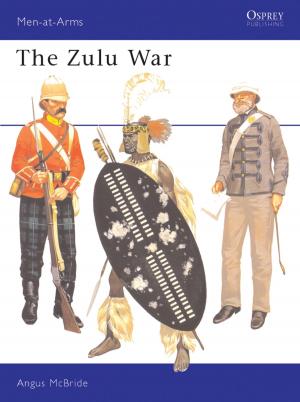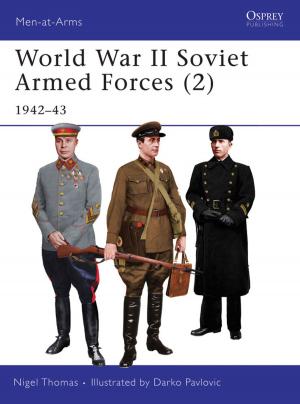On Afghanistan's Plains
The Story of Britain's Afghan Wars
Nonfiction, History, Middle East, Military| Author: | Jules Stewart | ISBN: | 9780857730275 |
| Publisher: | Bloomsbury Publishing | Publication: | June 30, 2011 |
| Imprint: | I.B. Tauris | Language: | English |
| Author: | Jules Stewart |
| ISBN: | 9780857730275 |
| Publisher: | Bloomsbury Publishing |
| Publication: | June 30, 2011 |
| Imprint: | I.B. Tauris |
| Language: | English |
Britain's military involvement in Afghanistan is a contentious subject, yet it is often forgotten that the current conflict is in fact the fourth in a string of such wars dating back more than 170 years. During the nineteenth century, the days of the Great Game rivalry in Central Asia, the British feared that if Russia were to gain a foothold in Afghanistan it would either overwhelm and overpower the Afghan army, or conspire with the holder of the Kabul throne, enabling Tsarist troops to march across Afghanistan's barren wastelands and invade India, the prized jewel in the British Empire.
The first of the Anglo-Afghan wars arose in an attempt to depose the Afghan emir, Dost Mohammed, who was falsely believed to be conniving with St. Petersburg, with the Army of the Indus launching its invasion in 1838 and dispatching large numbers of soldiers after the supposed threat - Persia's Russian-backed siege of Herat - had disappeared. Acting on a Russian military-diplomatic mission to Kabul in 1878 - seen as nothing more than a provocation - the British launched their second invasion. And in 1919, following an Afghan incursion into the Khyber Pass, Britain entered into the third and final conflict of the Anglo-Afghan wars of the nineteenth and early twentieth centuries. The wars were ill-conceived and led to some of the worst military disasters ever sustained by British forces, with poor strategy in the First Afghan War resulting in the annihilation of 16,000 soldiers and civilians in a single week.
On Afghanistan's Plains examines the potential danger of replaying Britain's military catastrophes in Afghanistan, and considers what can be learned from the experiences of the past Anglo-Afghan wars.
Britain's military involvement in Afghanistan is a contentious subject, yet it is often forgotten that the current conflict is in fact the fourth in a string of such wars dating back more than 170 years. During the nineteenth century, the days of the Great Game rivalry in Central Asia, the British feared that if Russia were to gain a foothold in Afghanistan it would either overwhelm and overpower the Afghan army, or conspire with the holder of the Kabul throne, enabling Tsarist troops to march across Afghanistan's barren wastelands and invade India, the prized jewel in the British Empire.
The first of the Anglo-Afghan wars arose in an attempt to depose the Afghan emir, Dost Mohammed, who was falsely believed to be conniving with St. Petersburg, with the Army of the Indus launching its invasion in 1838 and dispatching large numbers of soldiers after the supposed threat - Persia's Russian-backed siege of Herat - had disappeared. Acting on a Russian military-diplomatic mission to Kabul in 1878 - seen as nothing more than a provocation - the British launched their second invasion. And in 1919, following an Afghan incursion into the Khyber Pass, Britain entered into the third and final conflict of the Anglo-Afghan wars of the nineteenth and early twentieth centuries. The wars were ill-conceived and led to some of the worst military disasters ever sustained by British forces, with poor strategy in the First Afghan War resulting in the annihilation of 16,000 soldiers and civilians in a single week.
On Afghanistan's Plains examines the potential danger of replaying Britain's military catastrophes in Afghanistan, and considers what can be learned from the experiences of the past Anglo-Afghan wars.















